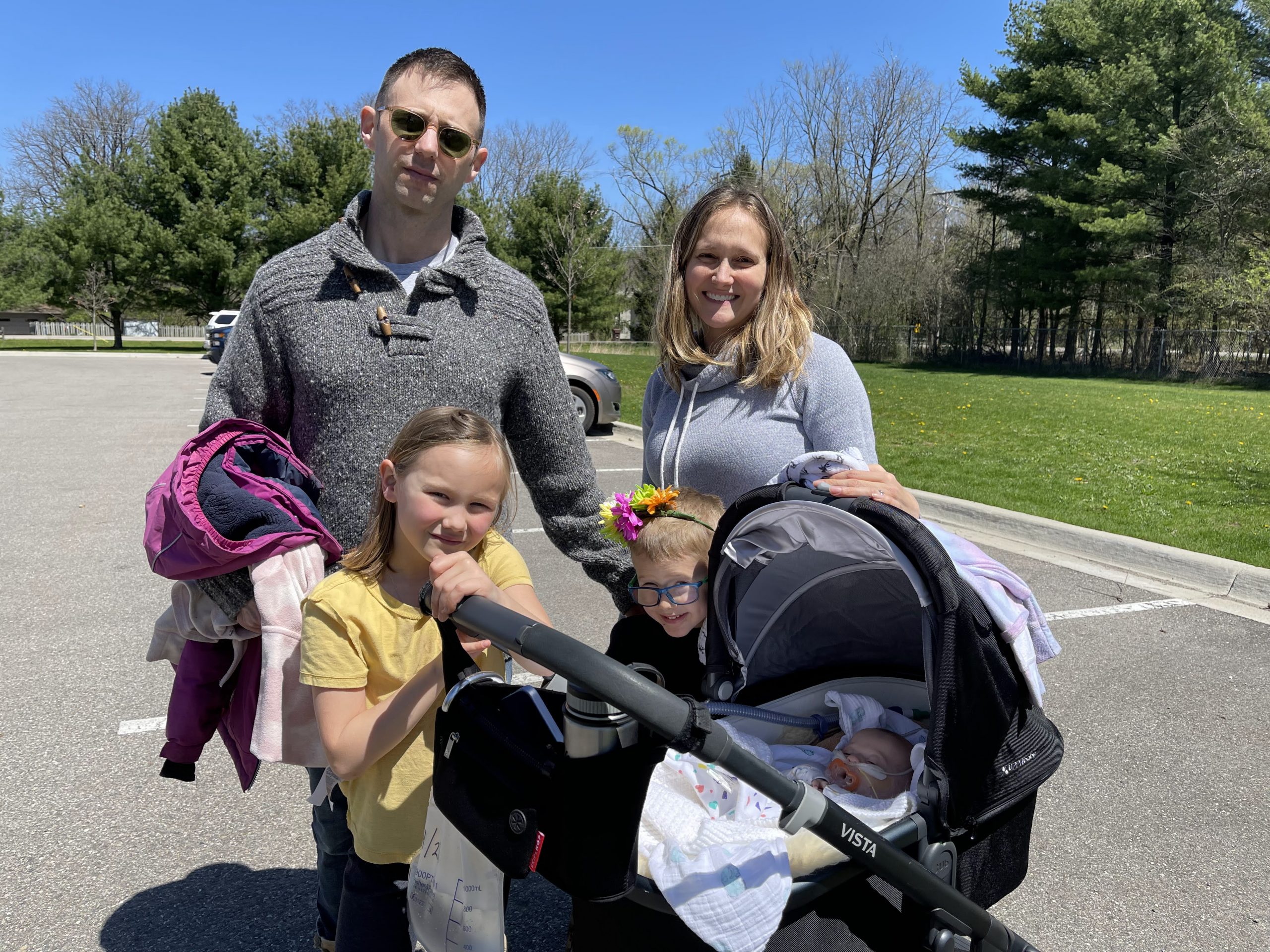I only had one Mother’s Day with all three of my children alive. I wish I could say something poetic and beautiful about it.
But I don’t remember anything from that day.
I had to look back through my photos to figure out what happened. My husband went back through his, too, because he also could not remember. I found pictures of my mom and I shopping for an outdoor rug for our back deck. He had photos of our medically-fragile baby, Viggo. For weekday care of Viggo, my mom and I worked in shifts. As a result, we hadn’t spent much time together outside of handing off caregiving duties since he came home from the NICU in February. Our family could not travel because Viggo was too fragile, so we decided to beautify the back porch. I can only guess that is why we went shopping at the hardware store together for Mother’s Day last year.
 I should have known it was my only Mother’s Day with Viggo. In fact, I did sense this, but I couldn’t hold that thought in my consciousness because it was too heavy. And now here I am, wishing I had taken a photo of myself with my three children on that day. And now here I am, telling myself that it was JUST A DAY, it doesn’t mean anything, and we have plenty of photos from other days.
I should have known it was my only Mother’s Day with Viggo. In fact, I did sense this, but I couldn’t hold that thought in my consciousness because it was too heavy. And now here I am, wishing I had taken a photo of myself with my three children on that day. And now here I am, telling myself that it was JUST A DAY, it doesn’t mean anything, and we have plenty of photos from other days.
Judging myself for failing at Mother’s Day.
Judging myself for feeling bad about it.
This is the reality of grief after medical trauma. Trauma affects brain function in tangible ways, and for me, it means that there is so much of Viggo’s life that I don’t remember. Just this spring, I started to organize a 40th birthday party for a close friend, only to learn that she turned 40 last year, and that I had attended the party. Are the memories there, just locked away somewhere? Or were they never written?
This difficulty remembering complicates my grief. I don’t have any more chances. I don’t have any more Mother’s Days with Viggo. When I did have my chance, I was out of my mind with stress, trauma, love, worry, anticipatory grief, and the hypervigilance of caregiving for my baby while also trying to meet the needs of my older two children. I wish I could have been more present for all those moments. I wish I could remember.
The other day, I had a conversation with a stay-at-home mom of three. She described her high levels of anxiety in the early days of caring for her small children full-time. Like me, she also struggled to remember the “beautiful” moments, as multitasking without a break, anxiety, and isolation meant she was barely keeping it together for years.
While our experiences are so different–-some would say incomparable—I was comforted to hear the common threads of mom guilt and mom regret in her story. No matter how tragic, or perfect, our mothering looks from the outside, we can still be swallowed up by these two aspects of self-judgment. Mom guilt and mom regret are especially toxic for grieving mothers, because we have no more chances to redeem ourselves in our own eyes.
We would never shame our sister-mothers for being human and struggling in extremely challenging circumstances. We would never shame anyone for experiencing symptoms of PTSD. Yet we are not always so kind to ourselves. On Mother’s Day this year, my spiritual work was to recognize my guilt and regret as separate from my grief. While I will never stop grieving Viggo, I can stop feeling bad about being imperfect. I can give myself the compassion that I so freely give to others. I can ask for reassurance when I can’t dig myself out of my own dark hole. I can tell other mothers that they are doing an amazing job. I can remember that motherhood, like life, is messy and complicated.
________________________________________________________________________________________________________________
Ashley Waddell Tingstad is an estate planner in Ann Arbor, Michigan. She is the wife of a veteran and the mother of three. Her son, Viggo Rick, was born with a rare genetic condition and died at six months of age. Mothering and grieving Viggo has changed Ashley in the most profound ways. She is dedicated to helping families mitigate trauma and suffering in situations where there will be no “happy ending.” She writes about her journey here, at momherenow.com, and on Facebook @momherenow.
